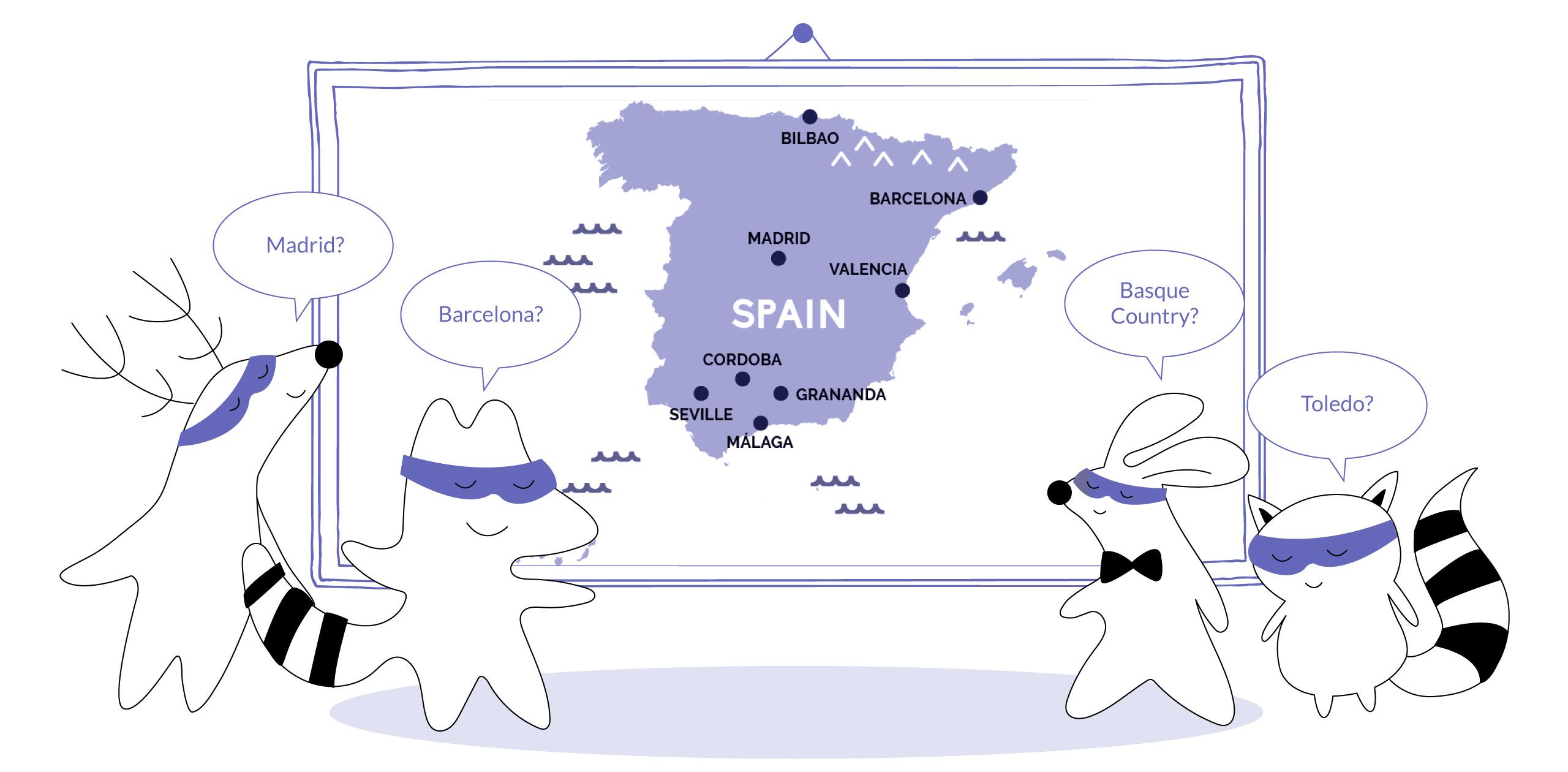
The Advanced Placement Spanish Language and Culture exam represents an incredible opportunity for English-speaking students studying Spanish to showcase their proficiency while potentially earning college credit.
In this comprehensive guide, we'll have a look at what the AP Spanish exam is all about, its relevance, and strategic pointers to bolster your Spanish language skills and cultural understanding. These tips will help you not just pass but excel in this rigorous assessment.
Learn Spanish with Langster
What Is the AP Spanish Language and Culture Exam?
The AP Spanish Language and Culture exam is an advanced language proficiency test developed by the College Board to target high school students’ Spanish knowledge. It assesses your ability to communicate in Spanish as well as your understanding of the various Hispanic cultures around the world.
The exam consists of multiple-choice questions, interpretive communication tasks, simulations of real-life conversations, spoken responses, and a comparative essay that mirrors college-level Spanish courses.
The exam is scored on a scale of 1-5, with 5 being the highest score. Scoring a 3 or higher may earn you college credit and advanced placement in Spanish courses at many colleges and universities.
Is the AP Spanish Exam Still Relevant?

Taking the AP Spanish Language and Culture exam can significantly enhance your educational journey and career prospects. Let's understand how:
Advanced Placement
Beyond the immediate financial savings, performing well on the AP Spanish exam demonstrates your commitment to mastering a second language (just like a level test), which is highly regarded by colleges and universities. It reflects your readiness for more advanced studies, potentially allowing you to skip introductory Spanish classes.
This head start can offer the flexibility to pursue double majors, study abroad opportunities, or simply the advantage of a more varied class selection during your college years. Excelling in the AP Spanish exam can pave the way for a richer, more diverse educational experience.
Language Proficiency
AP course curriculum is designed to improve your Spanish speaking, listening, reading, and writing skills (plus cultural perspectives) to a level that may facilitate study abroad opportunities or internships in Spanish-speaking countries.
Cultural Competence
In an increasingly globalized world, cultural sensitivity and awareness are invaluable regarding personal and public identities. The AP Spanish exam not only tests language proficiency but also cultural understanding, which can better prepare you for diverse workplaces, global challenges, and international interactions.
Career Opportunities
Taking an AP Spanish course can help you become bilingual, which is a coveted skill in many fields, including business, healthcare, law, education, and more.
Preparing for the AP Spanish Language and Culture Exam

Preparing for the AP Spanish exam involves enhancing both your language skills and cultural understanding. To do well, here's what you need to concentrate on:
Grasping the Language
- Grammar and vocabulary. Immerse yourself in a wide range of Spanish literary forms. Read novels, newspapers, and academic texts while actively refining your grammar and vocabulary.
- Listening comprehension. Flex your listening muscles by engaging with Spanish-language media like films, songs, podcasts, and news broadcasts.
- Speaking and writing skills. Participate in Spanish-speaking discussion groups or write essays on various topics. Constructive feedback from instructors or native speakers is gold.
- Test practice. Utilize past exam papers and simulate exam conditions to get familiar with the types of questions you may encounter.
Understanding the Culture
Spanish isn't just a language; it's a gateway to rich and diverse cultures.
- Literature and history. Delve into the works of prominent Spanish and Latin American authors. Understand the historical events that have shaped Hispanic societies.
- Customs and traditions. From flamenco in Spain to Dia de los Muertos in Mexico, each tradition enriches your cultural vocabulary.
- Current events. Stay up to date on contemporary issues and accomplishments in the Spanish-speaking world.
- Community engagement. Where possible, immerse yourself in local or online Spanish-speaking communities. This real-world exposure will enhance your language skills and provide a practical application of cultural lessons.
Tips to Pass and Excel in the AP Spanish Exam

Now, let's dig into some actionable tips that can give you an edge when taking the exam:
Master the Exam Format
First things first: know the structure of the exam like the back of your hand.
Familiarize yourself with the different sections, which include:
- Interpretative Communication (print and audio),
- Interpersonal Writing (email reply),
- Presentational Writing (persuasive essay), etc.
Engage with Personal Interests
Channel your hobbies or interests into learning Spanish. For example, if you enjoy cooking, try following Spanish language recipes, which will help you naturally acquire relevant vocabulary.
Consistency is key! Engage with Spanish daily by switching your phone's language settings, chatting with Spanish-speaking friends, or keeping a daily journal in Spanish.
Cultural Comparison
When studying, practice cultural comparison by reflecting on how your personal beliefs and customs align or differ from those in Spanish-speaking communities. This critical thinking exercise will deepen your cultural understanding and appreciation.
Tailor your study sessions to target your weaker areas, whether it be interpretive communication, written expression, or cultural knowledge.
Explore Personal Beliefs
The exam's comparative essay is an excellent opportunity to examine personal beliefs within the context of Hispanic culture. As you prepare, consider how events in the Spanish-speaking world mirror or diverge from your own experiences.
Leverage Study Groups
Study groups can offer diverse perspectives, discussion opportunities, and moral support essential for motivation and progress. Practice as much as possible: from online resources to textbooks designed specifically for the AP Spanish exam, utilize multiple sources to challenge yourself.
Relaxation is Crucial
As with any exam, it's important not to burn yourself out. Balance study with relaxation, and ensure you're well-rested before the big day.
Conclusion

Conquering the AP Spanish Language and Culture exam may seem daunting, but with a fervent dedication to your language study and an enriching exploration of Hispanic cultures, it's an entirely achievable goal.
Remember, this is more than just an exam—it's a celebration of linguistic achievement that paves the way for future personal, educational, and professional opportunities.
As you gear up to excel in your AP Spanish exam, it is essential to continue the momentum of your learning journey. Along with exploring resources like the College Board's official website and participating in online forums, why not download apps like Langster?
This way, you'll be able to keep your Spanish studies engaging and continuous, ensuring success. And, you can start for free!
Learn Spanish with Langster









